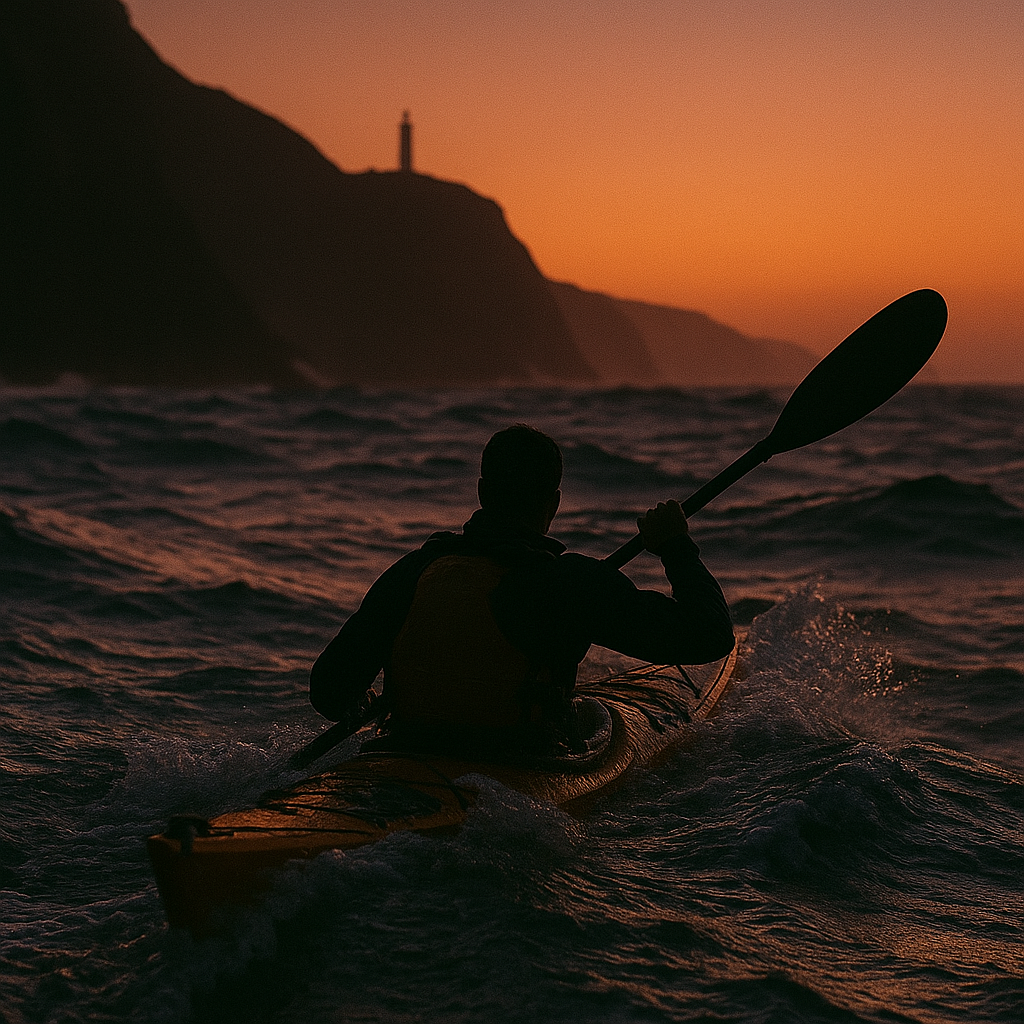5 Connections, 5 Insights: 11-15 of 100
Project Horizon is a global conversation experiment by executive coach and high-performance consultant Tim Dutton. It aims to uncover diverse human perspectives by connecting with 100 remarkable people worldwide, linked through six referral-based chains.
ON THE GO? LISTEN TO THE INSIGHTS 🎧
The Connections
11. Retired American oil investor
12. Polish software tester who’s passionate about plants
13. A lawyer who offered interesting perspectives on working with wealthy people
14. World record sea kayaker and instructor
15. The godfather of sea kayaking
Insight 11: Be Willing to Be Contrarian
The retired oil investor started his company in 2004 with an $8 million investment. Instead of competing with the oil giants for prime drilling sites, he took a contrarian path.
He described his strategy as being like the small fish that swim alongside the whale and feed off it. After retrieving around 20% of oil from a well, large companies (the ones you’d have heard of, like Shell and BP) slow down production. This slowdown can hit their stock price, so they move on to the next easy 20%.
That leaves behind wells that are still rich in oil but require more ingenuity to unlock. The process is known as enhanced oil recovery, which often involves injecting steam, gases, or chemicals to improve flow.
From my performance background, this contrarian approach reminded me of sports organisations that, with limited budgets, are forced to be more creative in their recruitment and operations to build competitive teams. Being a football fan, my mind goes to the Premier League teams Brentford and Brighton.
Within a decade, the retired oil investor’s contrarian strategy turned $8 million into hundreds of millions.
It made me ponder where I might go against the grain more often in my own life.
Insight 12: Wisdom Isn’t Always Well-Spoken
With Project Horizon reaching people on all continents, it hasn’t been without its challenges around language barriers. Being an ignorant monoglot Brit, every conversation has been conducted in the King’s English. This has meant that while speaking to people from Brasília to Delhi, Tokyo to Ufa (a Russian city 725 miles east of Moscow), many have shared their stories and perspectives in their second or even third language.
After speaking with the plant-loving Polish software tester, I was struck by how much insight she could express in English. Yet I couldn’t help wondering how much more nuanced her reflections might have been in her native tongue, with a richer set of words to articulate her perspectives.
It reminded me of a summer I spent in 2017 at ASM Clermont Auvergne rugby club in France on a strength and conditioning placement. Despite having studied French beforehand (all now forgotten), when I arrived, I was met with blank faces. For six weeks, my coaching vocabulary consisted of shouting “Allez! Allez!” and playing AC/DC’s Thunderstruck in the gym. It didn’t matter what I knew, as without the language, I couldn’t meaningfully contribute.
The takeaway for me is that not everyone has the language or communication skills to articulate the wisdom they possess, whether in their own tongue or a foreign one. Sometimes this means it takes longer for people to formulate their sentences. At other times, they simply don’t have the words. Either way, it makes me wonder whose ideas and perspectives get prioritised in society, and whose are marginalised, simply because of the language they can or cannot use?
Insight 13: Maintaining Integrity
Throughout Project Horizon, I’ve tried to keep it ‘pure’. By that, I mean I’ve tried to prioritise the perspectives and stories of the person I’m connecting with, rather than my own agenda.
Other than sharing a little about my work to build rapport, I’ve resisted turning this into a networking device to gain clients. Not only would that make me feel grubby, it would also erode the quality of the project. The conversations would start to feel transactional rather than human.
This tension was present when I spoke with the lawyer and heard about his corporate clients. The business side of me was keen to explore his network of executives and business owners to see if any aligned with my own venture. But the rules are the rules. I can only speak to those who are referred to me.
What I take from this is that integrity is often tested in those moments where there’s something to gain. The discipline to hold back is uncomfortable, but it’s what allows us (and Project Horizon) to stay honest and meaningful.
Insight 14: Shared Vision and Understanding Supercharges Teams
In 2007, the sea kayaker set off for Vancouver to attempt the fastest tandem circumnavigation of Vancouver Island. The 700-mile challenge, raising money for Breakthrough Breast Cancer, meant beating the previous record of 26 days.
His ambition was clear when he told me, “People said it couldn’t be done, but I said we’d halve the record.”
What surprised me most was that he had never even met the man who would share the bright pink tandem kayak with him. More surprisingly, they completed the expedition in 19 days without a single cross word. (For the record, they were on track to halve the previous world record until their kayak broke on day 17 and they limped across the finish line, covering an average of only 15 miles a day in the last two days.)
My point isn’t that harmony is necessary to achieve goals. On the contrary, I believe healthy disagreements can be catalysts for growth when differences are explored with curiosity. What struck me was how two relative strangers, united by a shared vision and clarity of understanding of what they needed to do, could align so quickly and achieve something extraordinary.
It makes me question what might be possible in our established relationships, if only we invested the time and energy to (re)establish alignment. On vision. On purpose. On ways of working. And on ways of being.
Insight 15: Plan to Reduce the Risk of Rushing
If you asked the world-record-holding sea kayaker from Insight 13 who he admired most, he would (and did) point to the man I am about to speak about.
Often described as the godfather of British sea kayaking, he deserves far more than a single insight. If you have ever been in a sea kayak in the UK, there is a good chance he made your vessel.
Yet he did not begin as a master of the seas or a kayak builder. He was first an international squash player who, at 27 and with little kayaking experience, decided he wanted to be the first to kayak around the UK.
After two years of training, he completed the 2,200-mile journey in 85 days in 1980.
Since then, he has undertaken expeditions that few others have managed, including circumnavigating South Georgia and Easter Island, two of the most remote islands on Earth. He also spent 30 days kayaking in Antarctica and became the first to paddle around Cape Horn, one of the most treacherous maritime passages in existence.
I asked him how he dealt with fear and risk across these challenges. He answered that danger arises when you rush. If you assess risks beforehand, build the required skills, carry the right equipment, plan carefully, and give yourself enough time, the dangers can be reduced significantly.
This is not to say that things will never go wrong. But with preparation, the risks can be managed.
It’s about giving yourself enough time so that you are never forced to rush. The godfather of sea kayaking simply applied these brilliant basics to feats no one had achieved before.
The ‘no rush’ personal takeaway for me was to provide more buffer time before needing to be somewhere so that I can turn up calm and feel more present.
Summary
Together, these five conversations reminded me of the value in going against the grain, of listening beyond language, and of holding firm to integrity when it’s tempting not to. They showed me how shared vision can unite even strangers, and how slowing down is often the safest way forward.
Next time: Insights from connections 16–20.






















